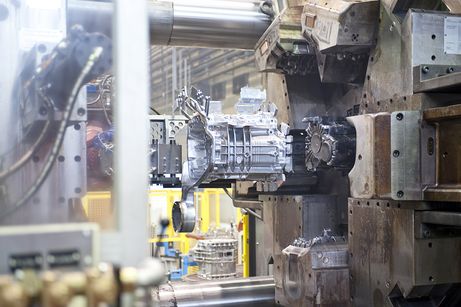
The diecasting industry in Malaysia has experienced considerable development over the past couple of decades, driven by enhancing demand from neighborhood and global markets. As Malaysia remains to establish as a local manufacturing hub, the requirement for top notch, accurate components has actually risen. Diecasting is particularly valued in the auto sector, where suppliers call for high-performance parts with extraordinary durability. The quick growth of the automotive sector in Malaysia has brought about an increase in demand for diecast parts, such as engine parts, framework parts, and indoor elements. Furthermore, the rise in customer electronic devices, specifically in smart devices, computers, and home devices, has actually further sustained the need for diecast elements, making sure the proceeded relevance of this production procedure in Malaysia's economy.
The capability to produce complex and thorough parts is just one of the main benefits of diecasting. The process allows suppliers to produce parts with complex geometries, such as thin walls, damages, and comprehensive surface functions, which would certainly be testing to achieve with various other typical manufacturing methods. This ability has made diecasting an appealing choice for markets that call for high precision and intricacy in their parts. The automobile industry, for instance, depends on diecasting to develop light-weight and resilient components that aid enhance fuel effectiveness and overall car performance. Additionally, diecasting provides a high level of repeatability and consistency, guaranteeing that each part produced is basically similar to the following, which is vital for sectors that require mass production of standard parts.
In addition to its precision and complexity, diecasting offers a number of other advantages, consisting of price efficiency and faster production times. The procedure typically causes fewer machining needs given that the parts generated are close to their final form, which reduces product waste and processing time. Diecasting likewise allows using a wide range of steels, consisting of aluminum, zinc, and magnesium, which are light-weight, solid, and resistant to corrosion. These steels are specifically helpful for markets like automobile and aerospace, where the strength-to-weight proportion is a vital element. The capacity to generate large amounts of premium parts quickly and at a reduced price has made diecasting a vital part of Malaysia's production method, attracting financial investments and increasing manufacturing capacity. To get more information please check this site out

The development of diecasting in Malaysia is additionally supported by a solid export market. As the nation's diecasting capabilities improve, much more Malaysian suppliers can fulfill the needs of international clients. Malaysia exports diecast products to a range of areas, consisting of North America, Europe, and Asia, with a particular focus on the vehicle, electronics, and durable goods industries. The nation's track record for creating premium, specific parts has actually made it an attractive partner for international companies looking to resource trusted components. Malaysia's trade agreements with numerous countries and its membership in regional companies such as Organization of Southeast Asian Nations have more strengthened its position as an export hub for diecast items. As international need for diecast parts remains to grow, Malaysia is well-positioned to maximize this chance and enhance its share of the global market.
Nonetheless, like many producing markets, the diecasting sector in Malaysia deals with challenges that need to be addressed to guarantee continued development and sustainability. One of the major challenges is the climbing expense of resources, especially steels such as aluminum and magnesium, which are crucial for diecasting. Fluctuations in international steel prices can impact the earnings of manufacturers and make it challenging for services to maintain competitive prices. To mitigate this, lots of diecasting firms in Malaysia are exploring different materials and recycling alternatives to reduce product costs and decrease waste. Furthermore, ecological concerns have actually motivated the sector to embrace even more sustainable practices, such as lowering power usage and enhancing waste management in the diecasting process. By welcoming sustainability, the Malaysian diecasting market can remain to thrive while adding to global initiatives to minimize environmental impact.